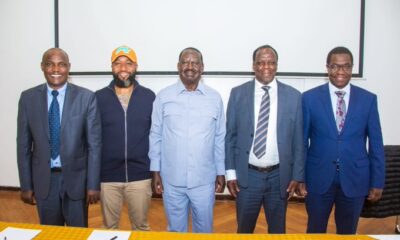She Business
Former World Bank Contractor Making Waves as a Fashionista
Chebet Mutai is a former World Bank Economic consultant-turned-fashionista, entrepreneur, and founder of WazaWazi.
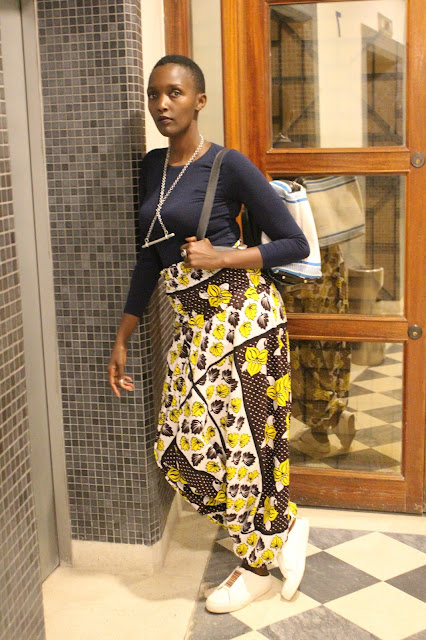
Former World Bank Contractor Making Waves as a Fashionista
By Anne Wambui
Chebet Mutai is the owner of WazaWazi fashion house, a 10-year-old Kenyan company that specializes in manufacturing of high-end leather products.
In May 2012 she bootstrapped her venture by selling a personal car and including dipping her savings.
“ I had about Ksh 500000 ($4,326.38) and I had a partner who bought the machinery and that is how I started. In the first three months of manufacturing life was hard. Not even my friends inquired what I was doing and that is when I learnt that the life of an entrepreneur can be lonely,” says Chebet.
Enter Sukhdev Kavr Mahajan, 80,a faithful client of WazaWazi a Swahili name cobbled up of two words, which combined mean ‘open-minded’.
The lady who is long on the tooth is a ’fastidious client with deep pockets to boot. And for your information she’s the proprietor of the premier Mada Group of Hotels, which have a footprint within the three East Africa States of Kenya, Uganda and Tanzania.
“ I began doing business in Kenya in 1972,” says Mahajan in her office cum shop based in Valley Arcade, a Nairobi suburb frequented by well-heeled individuals “ and to be honest the products of WazaWazi are exceptionally crafted. And the leather is genuine and smells natural,” she adds.
Coincidentally WazaWazi also has a shopping outlet here.
To market its products WazaWazi uses social media but disproportionately word of mouth does the trick.
The company purchases its leather exclusively from one of the 16 tanneries found in Kenya.
Kenya is home to the third largest livestock populations in Africa and leather, represents a potential area for sustainable economic growth and employment.
Reportedly the leather sector in Kenya contributes 0.3 percent to the country’s Gross Domestic Product (GDP).
Isaac Noor, CEO of the Kenya Leather Development Council (KLDC), an 11 year-old State Corporation established to enhance the local leather industry told Bird that Kenya exports 90 percent of its leather in raw form (semi-processed wet blue) while only 10 per cent is exported as finished products.
The leather industry is estimated to be worth Sh15 trillion ($150 billion) across the globe. With Africa commanding only four per cent. Kenya commands less than one per cent equivalent to Sh21 billion (US$ 181,739,506)
To date Chebet routinely attends trade fairs in the fashion capitals of the world including in Hong Kong, Frankfurt Las Vegas and New York cities.
Certainly a precocious entrepreneur, Chebet’s article of faith in business genuflects towards manufacturing quality goods believing that with the passage of time, ‘ a personal angel’ arguably weighs in leading to a sizable footfall into a business.
“ Quality is a way of life. It’s not a thing you do at the end. It’s something you do every step of the way,” says this former alumni of Kenyatta University (KU), a local institution, where she studied French and Economics.
She names her leather bags after people who have influenced her kaleidoscopically and conspicuously for now they all happen to be Africans.
Presently she gloats about three particular leather bags including the ‘Kittony Bag’ dedicated to Kenyan female veteran politician Zipporah Kittony, the Makosewe bag dedicated to late Kenyan media personality Grace Makosewe, the Luoch dedicated to Connie Aluoch a Kenyan stylist and the Wangari Ladies Work Tote Bag, allotted to the late Nobel Prize laureate, Prof Wangari Maathai.
It turns out Chebet’s entrepreneur journey was spurred by an altruistic sense of self-guilt borne from working for the World Bank beginning in 2006 after completion of her undergraduate studies.
After working at the Bretton Woods institution for three years her came face-to-face with her eureka moment.
After flying around sub Saharan Africa as a development consultant, Chebet realized problems ravaging the continent were homogeneously similar regardless of what country one was referring to.
From hindsight, it did not make sense then, for this present day 38-year-old peripatetic merchant, for a work-related flight to cost an estimated $ 5000 and when you include logistical and administrative charges the figure would almost double.
“ The cost of logistics and administration were higher than the impact of what we were doing as agents of development. So I thought ‘ ok what I need to do is come up with a business that would allow me to create jobs for the scourge of unemployment which was and continues to be a big problem in the continent. And since I loved clothes and fashion importing handbags from Dubai, I thought let me start a fashion business and create employment and that’s why I began this business.”
Unemployment in sub-Saharan Africa stands at around 6%, according to the International Labour Organization (ILO). But most of the work available is unskilled or low skilled, in part because the region has the world’s lowest levels of access to higher education.
So, although many Africans are employed, 70 % of Sub-Saharan Africa’s workforce is vulnerable, says the ILO .The global average for vulnerable occupations is 46 %.
According to ILO Business leaders in 22 out of 34 sub-Saharan African countries told the World Economic Forum three years ago that unemployment and underemployment were their most pressing concerns.
And as is often said, the proof of the pudding is in the eating. To date Chebet has employed 16 people in her factory.
“ I made a conscious decision that as African people we must stop theorizing about the change that is required for evidently poverty is ubiquitously present and as individuals we must step up to ameliorate the depressing situation. For it’s only then that we shall be able as a continent to lift more people out of poverty,” says Chebet.
Evelyn Ndelio, 50 is a quintessential employee of WazaWazi, and belongs to the ethnocentrism leaning Massai community of Kenya.
“ Chebet sent emissaries to our village in our ancestral Kajiado County, seeking women who were conversant with beading. And 10 of us volunteered to come to Nairobi to work for her. Since then our lives have greatly improved for we are paid a reasonable monthly wage, a phenomenal that was rare in the past,” says Ndelio, dressed in a colourful loincloth dress.
The array of leather goods manufactured in Chebet’s factory located within the verdant gated grounds of Jamhuri ShowGround here in Nairobi include leather backpacks, change purses, clutch bags, laptop or tablet leather cases beaded leather belts, jackets and so on all targeting a discerning global clientele.
“ When I began the business, the local banking ecosystem was averse to loaning money to budding entrepreneurs with solid business ideas but were lacking tangible assets to act as collateral,” says Chebet whose parents were typical civil servants working in Nakuru, Kenya’s fourth largest city, located 158 Klm NorthWest of Nairobi, the Capital.
To date however, the local banking industry has undergone a seismic change that has witnessed lenders increasing backing ideas with financial outlays even in instances where a putative entrepreneur is lacking a collateral asset.
While the Kenya Government has identified the leather sector as one of the flagship projects for realizing its manufacturing sector targets under Kenya Vision 2030, a policy paper that targets to make the country into a newly industrialized middle income country by 2030.
“ Your purpose is your endgame. That is your legacy. So if you start working on your purpose you are building your legacy everyday. Ease is a greater threat to your progress than hardship. So keep going. Keep working, until you win,” says Chebet.
She Business
Bethlehem Tilahun Alemu: From Ethiopian Artisan to Global Icon

: Discover how Bethlehem Tilahun Alemu built SoleRebels into a global,
sustainable footwear brand, overcoming challenges and transforming Ethiopian
craftsmanship.
Bethlehem Tilahun Alemu’s story begins in Zenabwork, a modest village on the outskirts
of Addis Ababa, Ethiopia. Growing up, she watched her community struggle with unemployment and poverty, despite a rich heritage of artisanal skills that remained largely untapped.
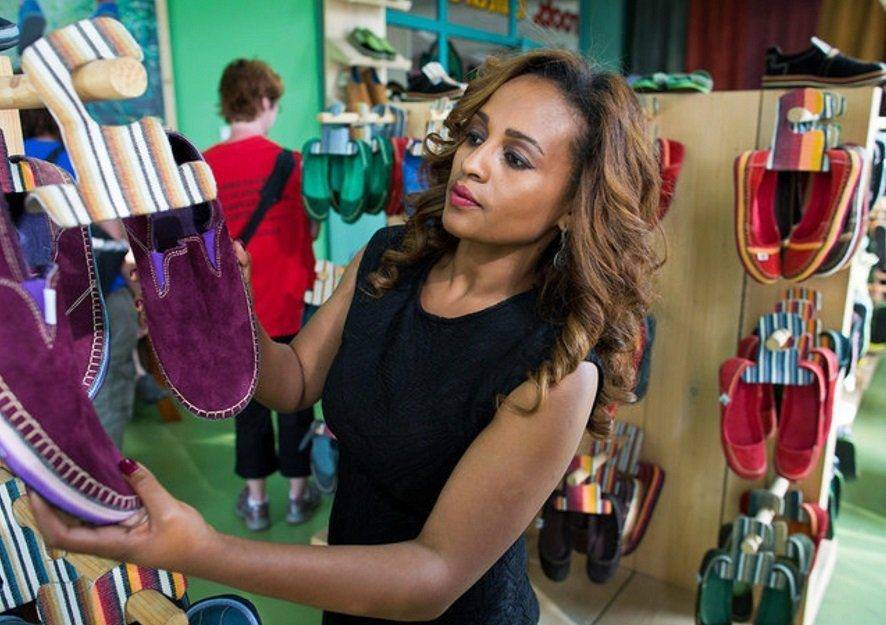
Fueled by determination and a desire to transform her surroundings, Bethlehem
embarked on a journey that would redefine African entrepreneurship and put Ethiopia
on the global map.
Her creation, SoleRebels, isn’t just a footwear brand. It’s a movement—an embodiment
of sustainability, culture, and empowerment.
A DREAM WOVEN WITH TRADITION
In 2005, Bethlehem founded SoleRebels with a simple yet powerful idea: to turn
Ethiopia’s rich artisanal craftsmanship into eco-friendly, globally competitive footwear.
Inspired by traditional “selate” shoes—made from recycled tyres—she envisioned a
brand that blended cultural authenticity with modern design.
She recruited local artisans, many of whom were unemployed, and encouraged them to
innovate while preserving traditional techniques.
Every pair of shoes was a masterpiece, crafted from hand-spun cotton, organic
materials, and repurposed car tyres. Bethlehem’s concept was groundbreaking: a product that told a story while making a global impact.
STARTING FROM SCRATCH
Like many entrepreneurs, Bethlehem’s initial challenge was capital.
With no access to bank loans or large investors, she relied on personal savings and
modest contributions from her family.
Slowly but surely, she built her business, reinvesting profits into training workers and
improving production tools. International grants and initiatives like the SEED Initiative later recognized the potential of her venture, providing additional support.

The early days weren’t easy. Artisans lacked modern tools, and accessing raw
materials was an uphill battle. But Bethlehem, known for her tenacity, tackled these challenges head-on. She developed partnerships with local suppliers to ensure a consistent supply of quality materials and invested in upskilling her workforce.
Breaking into the global market presented another hurdle. Competing against established brands seemed daunting, but Bethlehem found her edge: sustainability and ethical production.
In an era when consumers were becoming eco-conscious, SoleRebels’ ethos of fair wages, recycled materials, and cultural storytelling resonated deeply.
BUILDING A GLOBAL EMPIRE
Fast forward to today, and SoleRebels has a presence in over 30 countries, with
flagship stores in cities like San Francisco, Tokyo, and Barcelona.
It is also the first African footwear brand to be certified by the World Fair Trade
Organization (WFTO)—a testament to Bethlehem’s commitment to doing business the
right way.
Her company directly and indirectly employs over 1,200 people, making it one of
Ethiopia’s largest employers in the artisan sector.
Workers earn more than three times the industry average, a policy Bethlehem takes
immense pride in. “When we pay people well, we don’t just change lives—we transform
communities,” she says.
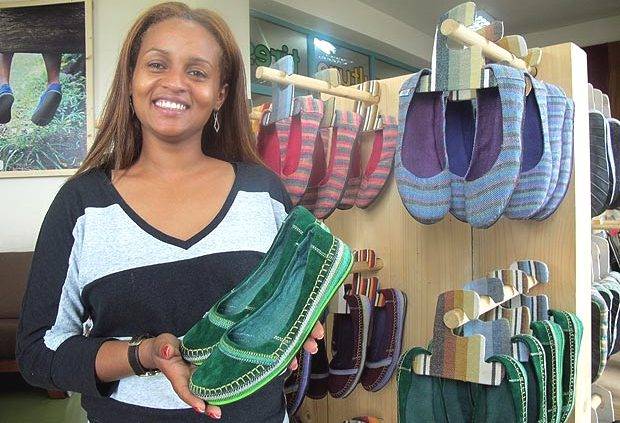
MENTORS AND INSPIRATIONS
Bethlehem often credits her late grandfather, a farmer and community leader, as her
greatest mentor.
His work ethic and deep belief in the power of local communities shaped her vision. She
also draws inspiration from global leaders, including Ethiopian Prime Minister Abiy
Ahmed, whose focus on innovation and economic growth aligns with her goals.
RISING ABOVE CHALLENGES
Bethlehem’s entrepreneurial journey has been marked by resilience. When production
scaled up, she faced supply chain disruptions that threatened deadlines. Her solution?
Cultivate long-term relationships with reliable local suppliers and diversify material
sources.
Entering new markets came with its own set of obstacles. Competing against
established brands requires a unique value proposition.
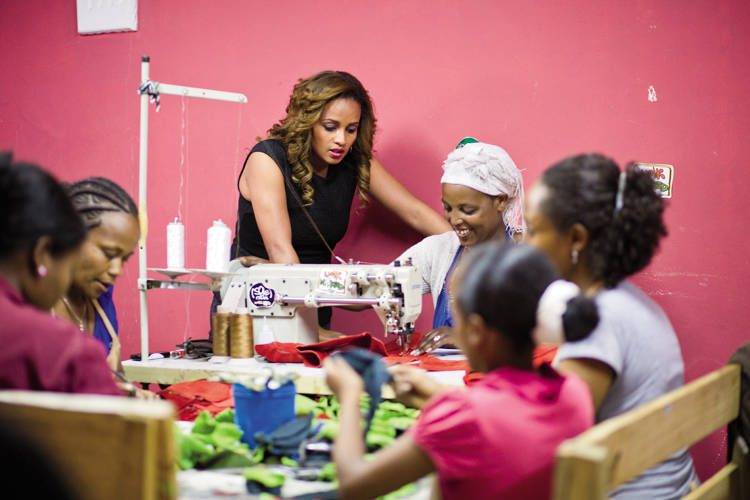
SoleRebels offered more than shoes—it offered a story: a product steeped in Ethiopian
culture, made sustainably, and crafted ethically.
VISION FOR THE FUTURE
Bethlehem isn’t slowing down. Her plans include:
- ● Expanding SoleRebels’ retail presence in Europe and Asia.
- ● Introducing sustainable clothing lines.
- ● Partnering with global brands to promote eco-friendly production in Africa.
Beyond SoleRebels, Bethlehem has a broader mission: to inspire a new narrative for
African entrepreneurship. She wants to show the world that Africa isn’t just a consumer
market but a hub for innovation and excellence.
CONCLUSION: WALKING THE TALK
Bethlehem Tilahun Alemu has redefined what it means to be an entrepreneur. From
Zenabwork’s dirt roads to the global stage, she has shown that success doesn’t come
from resources alone—it comes from vision, grit, and a deep connection to one’s roots.
With SoleRebels, Bethlehem has not only created a thriving business but a model for
how sustainable, ethical enterprises can transform communities. As she continues to
dream big, her footsteps pave the way for the next generation of African changemakers.
She Business
Joyce Akinyi Convicted: Heroin Smuggling Case Exposed

: Kenyan businesswoman Joyce Akinyi faces life imprisonment after being found
guilty of smuggling heroin worth US$ 34,483. Her history with crime has now
unravelled.
Joyce Teresia Akinyi’s story is one of dramatic highs and lows—rising from a successful
businesswoman to being convicted of a large-scale heroin smuggling operation.
With ties to international criminal networks, high-profile relationships, and repeated run-
ins with the law, Akinyi’s life has been marked by controversy and legal battles.
THE HIGH LIFE: BUSINESS AND INFLUENCE
Akinyi first gained prominence as the upscale Deep West Resort owner in Lang’ata,
Nairobi. Known for her affluent lifestyle, she mingled with Kenya’s elite and maintained
significant business interests.
However, behind the glamorous facade lay a darker world of alleged criminal activity.
Her personal life was equally turbulent. In 1998, she met Nigerian businessman Anthony Chinedu, and the couple had two children before formalising their union.
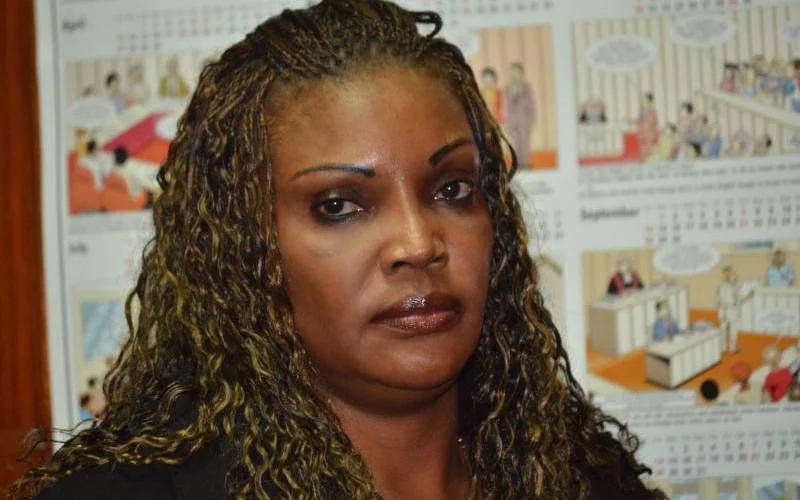
Their relationship was rocky, marked by numerous arrests on drug trafficking charges.
In 2013, Chinedu was deported from Kenya after authorities seized drugs in his
possession, a move that further exposed Akinyi to public scrutiny.
A HISTORY OF LEGAL TROUBLES
Over the years, Akinyi faced repeated allegations of drug trafficking. Her name became
prominent in 2008 when she was arrested in New Delhi, India, alongside former
Budalang’i MP Raphael Wanjala.
Authorities detained the pair with undeclared cash worth Sh7.59 million, suspected to
be linked to drug deals. Although released after intervention by the Kenyan government, the incident marked the start of a string of legal troubles for Akinyi.
In 2013, she and Wanjala were arrested again on the Nairobi-Namanga highway with a
suspicious white powder. Although they claimed it was corn flour, suspicions persisted,
and Akinyi’s criminal associations deepened.
THE TURNING POINT: CONVICTION FOR HERION SMUGGLING
Akinyi’s criminal activities reached a dramatic conclusion in 2019 when a police raid on
Deep West Resort uncovered 2kg of heroin worth Sh5 million hidden in a shoe rack.
The Anti-Narcotics Directorate linked the operation to an international smuggling
network coordinated by Akinyi.
The Jomo Kenyatta International Airport Tribunal found Akinyi guilty under Article
4(a) of the Narcotic Drugs and Psychotropic Substances Control Act, which
mandates life imprisonment for drug trafficking.
The court heard compelling evidence, including photographs of heroin wrapped in white
tape, voice recordings coordinating smuggling activities, and the discovery of a Tabita
Digital Scale used to weigh drugs.
Akinyi’s co-defendants, Paulin Kalala Musankinshay and Peres Adhiambo, were
similarly implicated. Evidence also revealed that Akinyi used multiple fake passports, including a Congolese passport in the names of “Mape Marline Kambura” and “Raha Eveline
Kambere,” enabling her to operate under different aliases.
FINANCIAL CRIMES AND ASSET RECOVERY
Beyond drug trafficking, Akinyi’s wealth came under scrutiny. In 2021, she lost two
luxury vehicles worth Sh20 million to the State, deemed proceeds of crime.
Investigations by the Asset Recovery Agency revealed that Akinyi deposited
suspiciously large sums ranging from Sh60,000 to Sh20 million into various bank
accounts. Her real estate investments—villas built and rented out—further indicated
illicit income sources.
THE END OF THE ROAD
On December 10, 2024, Akinyi faces sentencing, which could include life
imprisonment and a Sh5 million fine. Her fall from grace highlights the dangers of
unchecked ambition and illegal pursuits. Magistrate Njeri Thuku, who presided over the
case, dismissed Akinyi’s defence that the drugs were planted by her estranged husband
Chinedu, calling it baseless.
CONCLUSION
From her meteoric rise as a business mogul to her conviction as a drug trafficker, Joyce
Akinyi’s life is a cautionary tale of how power, wealth, and crime can intertwine.
Her story also underscores Kenya’s ongoing battle with drug trafficking and the far-reaching
consequences of organised crime. For Akinyi, the glitz and glamour of her former life
have now given way to the stark reality of justice.
Nb: Exchange rate 1 USD = 145 Ksh
She Business
How Margaret Nyamumbo Built Kahawa 1893 from the Ground Up
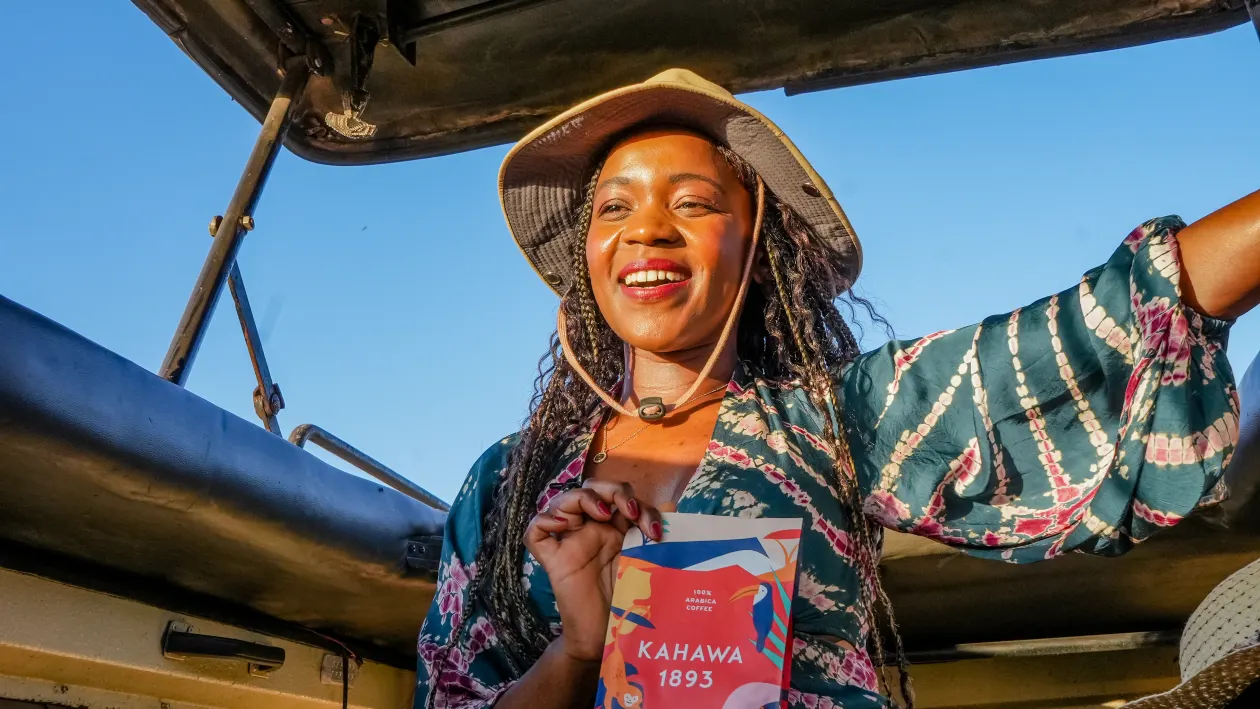
: Discover Margaret Nyamumbo’s journey from Kenya to the U.S. and how she
built Kahawa 1893 to empower women coffee farmers, achieving business
success and social impact
Early Life and Education: Pursuing Global Opportunities
Margaret Nyamumbo’s entrepreneurial journey began in Kenya, where she grew up on a coffee
farm. However, she moved to the U.S., a decision that significantly shaped her path.
In 2000, she travelled to Smith College, a prestigious liberal arts institution in Massachusetts,
to study economics.
Her desire to study abroad stemmed from the limited educational opportunities available for
women in Kenya at the time. As she later explained, her family encouraged her decision, viewing it as a way to give her the best opportunities for success.
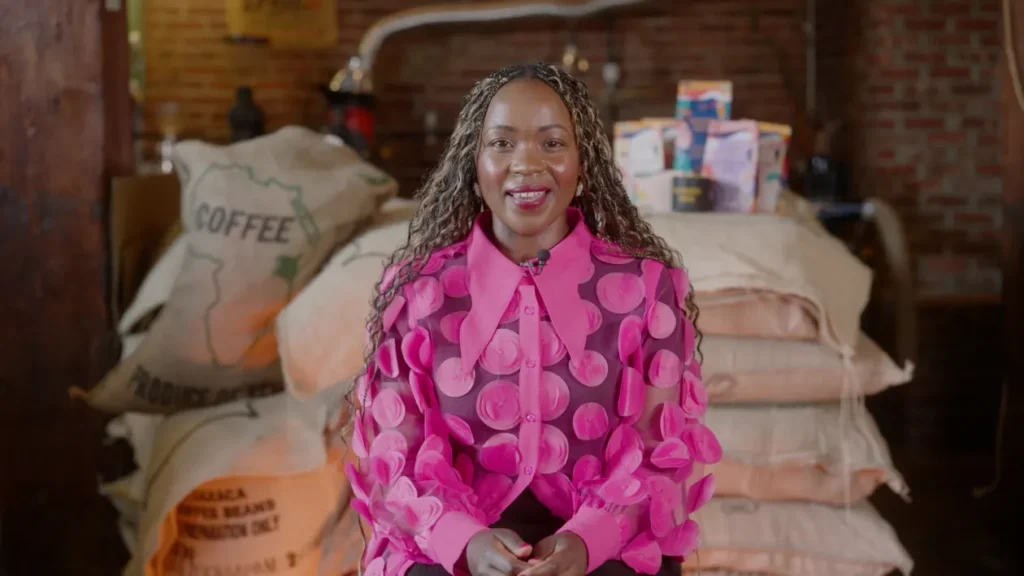
After earning her degree from Smith College, Nyamumbo pursued an MBA at the Wharton
School of the University of Pennsylvania, known for its rigorous business programs.
This solidified her foundation for a future in business, although it was the allure of her roots and a passion for coffee that eventually led her back to entrepreneurship.
From Corporate Work to Entrepreneurship: Embracing Coffee Culture
After completing her studies, Nyamumbo worked in investment banking and consulting, but the world of corporate finance didn’t fully satisfy her ambitions.
It was her return to the coffee industry, deeply connected to her Kenyan heritage, that drove
her entrepreneurial leap. With a vision to support East African coffee farmers, particularly women, Nyamumbo founded Kahawa 1893 in 2018, a coffee brand dedicated to highlighting Kenya’s coffee culture while mpowering local farmers.
The name “Kahawa” is the Swahili word for coffee, while “1893” marks the year when coffee
was first commercially grown in Kenya, grounding her brand in historical significance.
Through Kahawa 1893, Nyamumbo aimed to bring a new approach to the coffee business, one
that not only celebrated East African coffee but also created fair wages for farmers.
Building a Brand with Purpose: Empowering Farmers
Nyamumbo’s vision for Kahawa 1893 went beyond just selling coffee.
She wanted to create a direct impact on the lives of the farmers growing the coffee beans.
The brand’s model incorporated a system where customers could tip the farmers directly via a
QR code found on the coffee bags.
This innovation set the company apart from competitors and positioned it as a socially
responsible business that directly benefited those involved in the production process.
In 2021, Kahawa 1893 hit a major milestone, getting its coffee stocked in Trader Joe’s—the
first Black- and woman-owned coffee brand to be featured there.
This breakthrough moment was significant for Nyamumbo, marking the recognition of her hard work and her commitment to uplifting local farmers.
Overcoming Challenges: What It Takes to Succeed
Despite the challenges of entering a highly competitive market, Nyamumbo’s determination
never wavered. In a 2022 interview with Forbes, she shared her thoughts on what it takes to be a successful entrepreneur.
“You have to be able to take the punches and keep moving,” she said. Her advice reflects the
reality of entrepreneurship: persistence, resilience, and a willingness to learn from failure are
crucial for success.
Nyamumbo also emphasised the importance of passion. “You’ve got to love what you do, or you won’t have the energy to push through the tough times,” she said.
These values have guided her journey, driving Kahawa 1893 to not only succeed but also to
change the way the coffee industry operates, particularly about fair trade and community
empowerment.
The Future of Kahawa 1893: Expanding Horizons
With her success on platforms like Shark Tank and continued global distribution, Nyamumbo’s
Kahawa 1893 is poised for growth.

Her brand continues to expand its reach, and the emphasis on ethical sourcing, community
impact, and high-quality coffee will likely remain at the heart of her business model as she looks to further innovate in the global coffee market.
Through Kahawa 1893, Nyamumbo has shown that business success is not just about
profits—it’s about purpose, people, and passion.
-

 Business & Money9 months ago
Business & Money9 months agoEquity Group Announces Kshs 15.1 Billion Dividend Amid Strong Performance
-

 Politics4 months ago
Politics4 months agoFred Okengo Matiang’i vs. President William Ruto: A 2027 Election Showdown
-

 Politics3 months ago
Politics3 months agoIchung’wah Faces Mt. Kenya Backlash Over Gachagua Impeachment Support
-

 Politics6 months ago
Politics6 months agoPresident Ruto’s Bold Cabinet Dismissal Sparks Hope for Change
-

 Politics6 months ago
Politics6 months agoKenya Grapples with Investor Confidence Crisis Amid Tax Protest Fallout
-

 Politics6 months ago
Politics6 months agoPresident Ruto’s Lavish Spending Amid Kenya’s Economic Struggles Sparks Outrage
-

 Politics5 months ago
Politics5 months agoJohn Mbadi Takes Over Kenya’s Treasury: Challenges Ahead
-

 Business & Money2 months ago
Business & Money2 months agoMeet Kariuki Ngari: Standard Chartered Bank’s new CEO of Africa. What’s Next?

